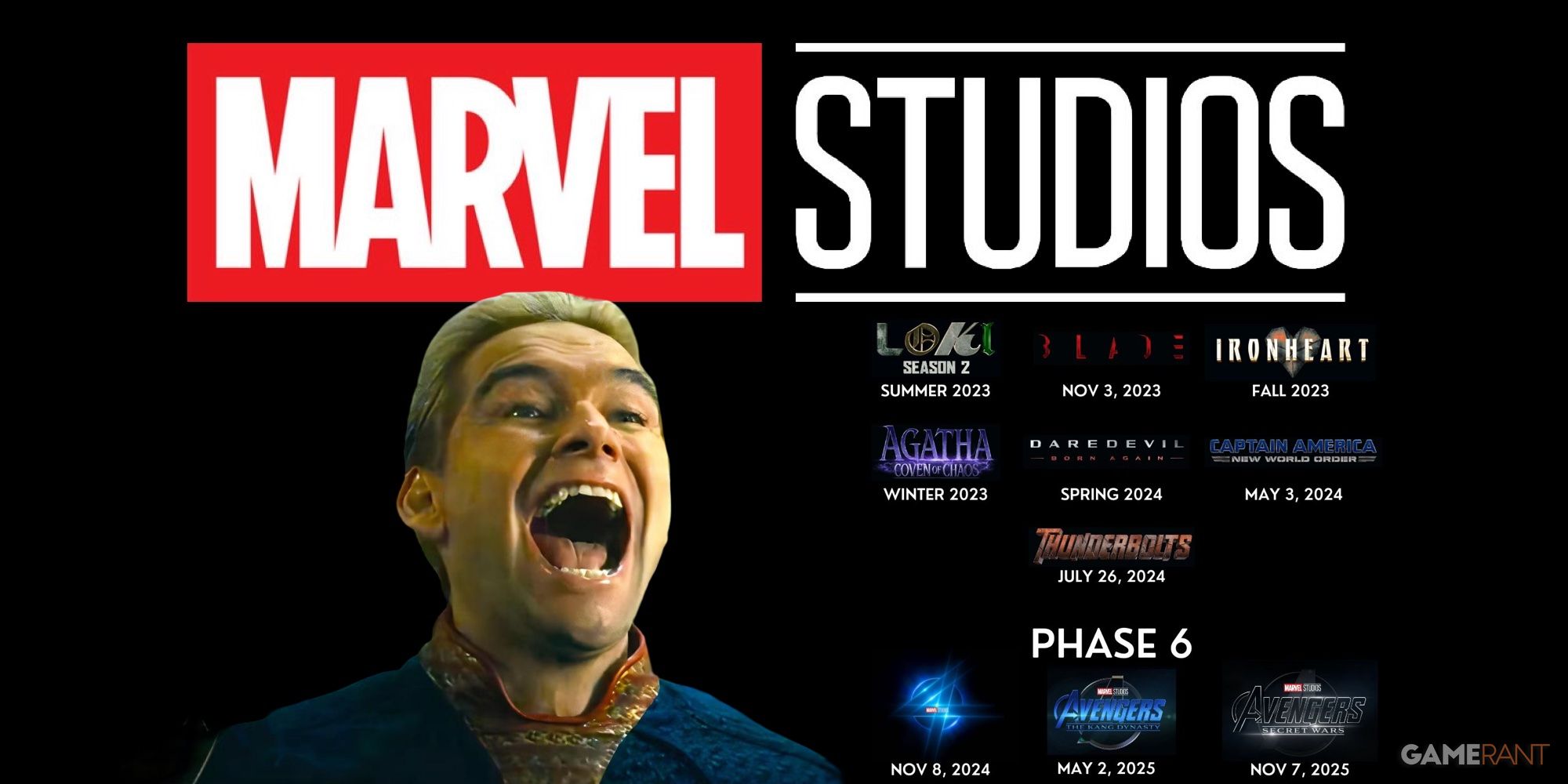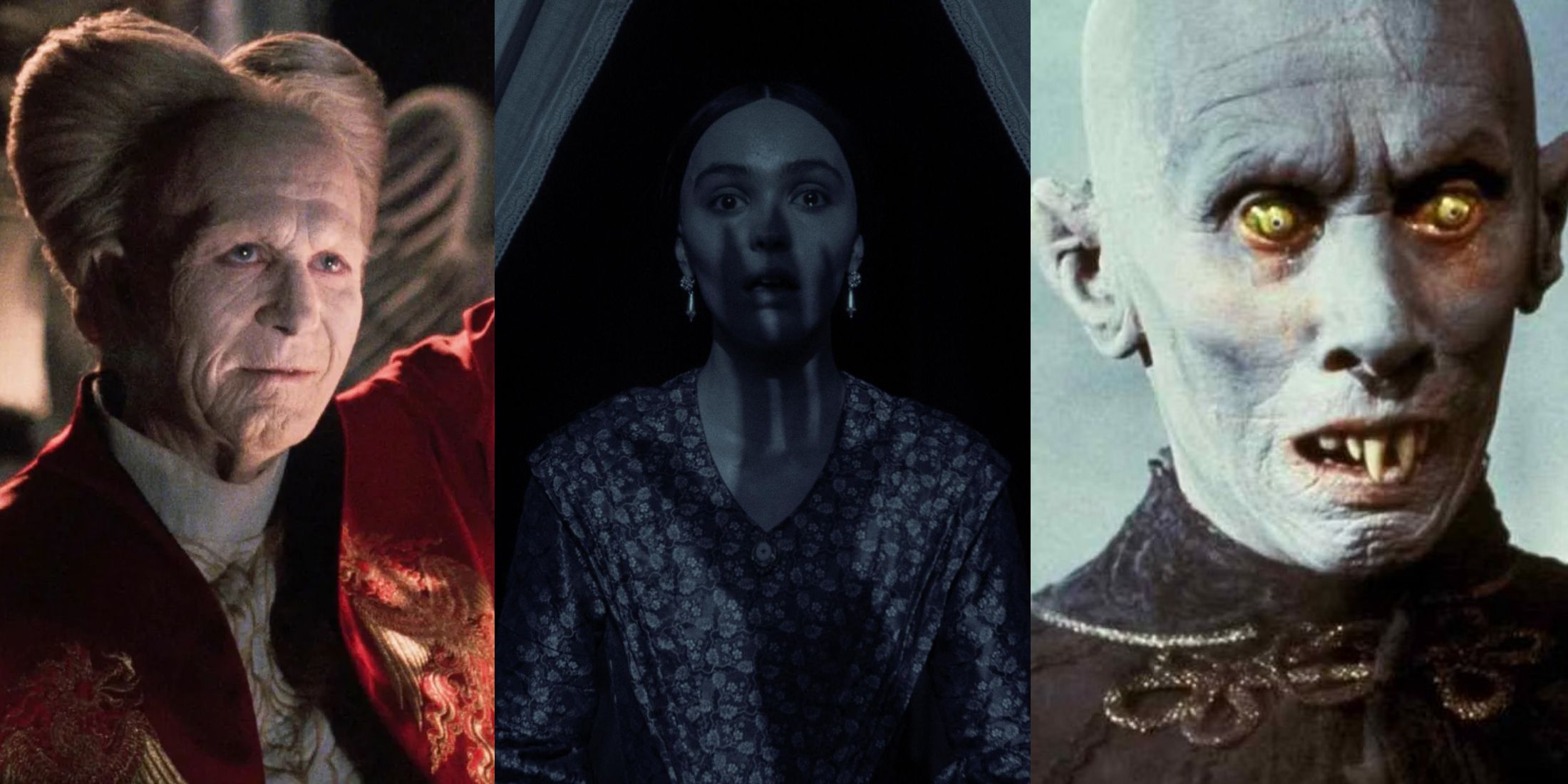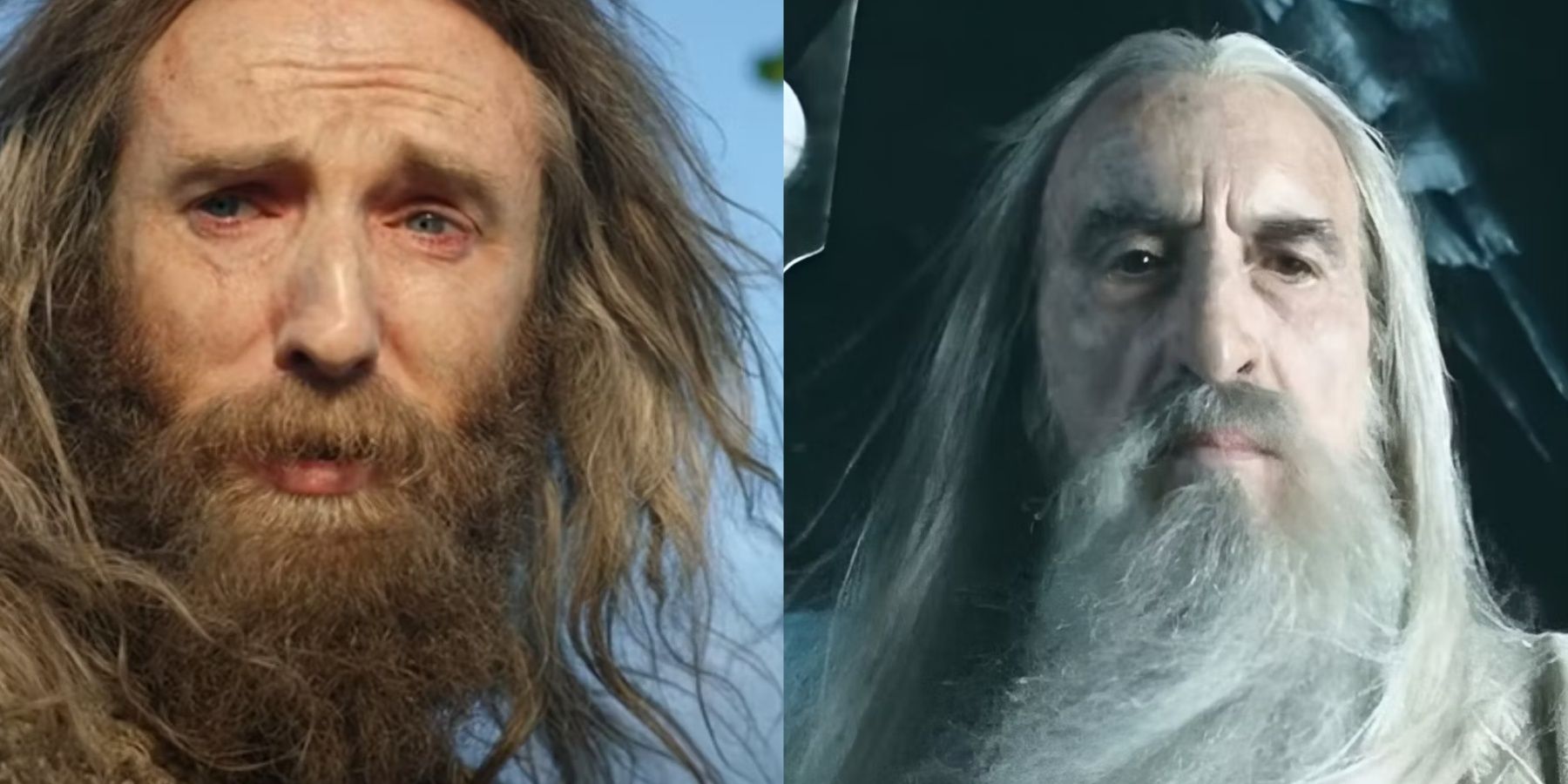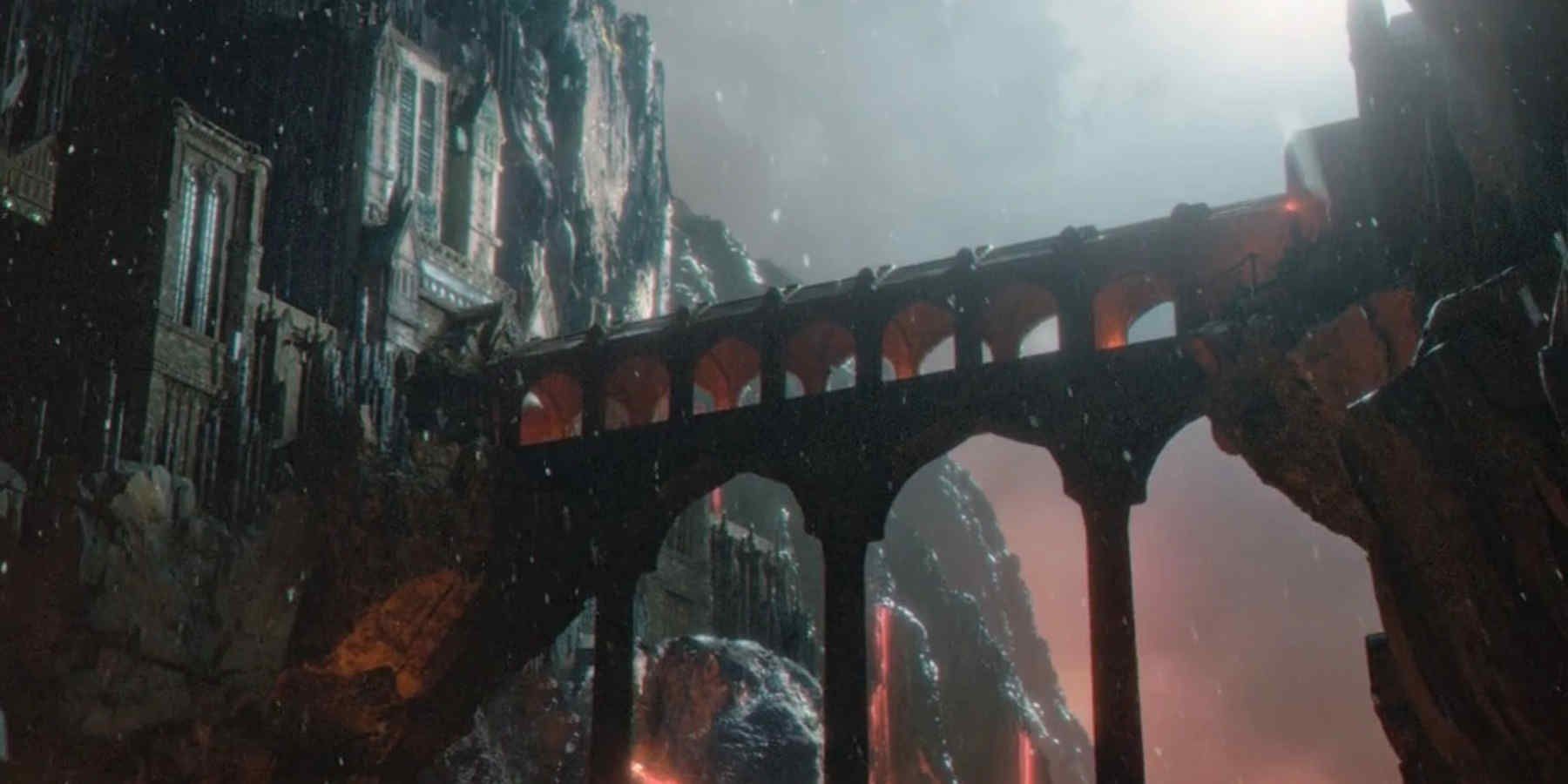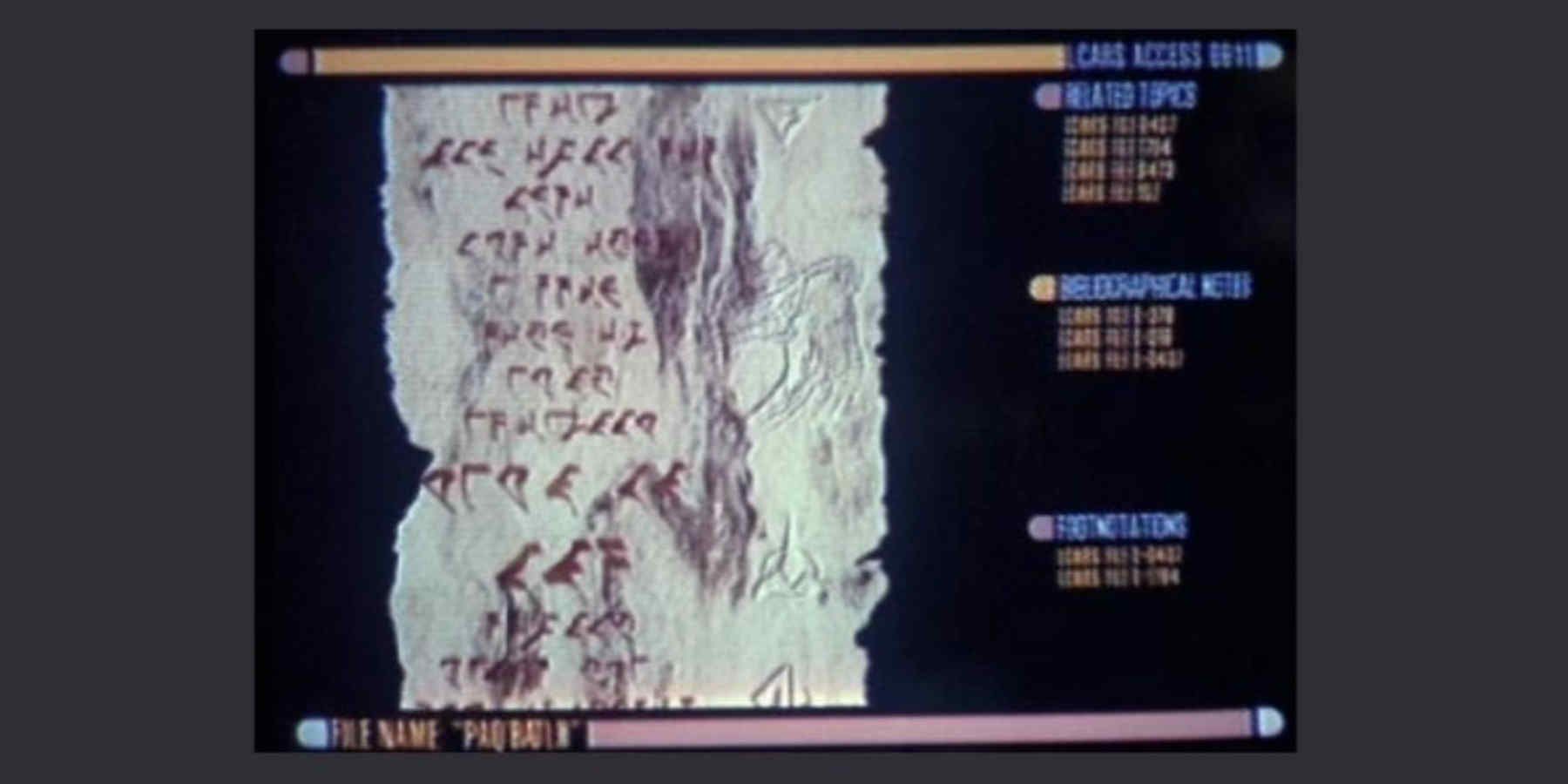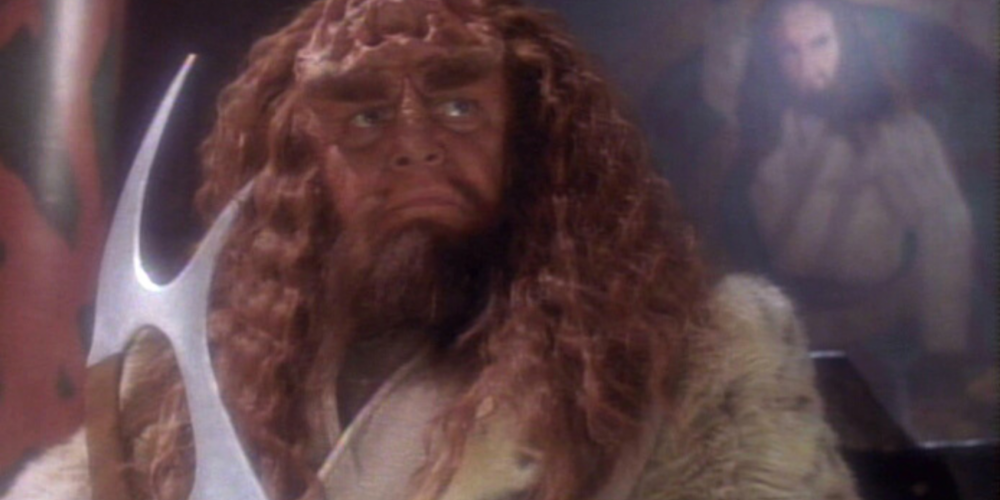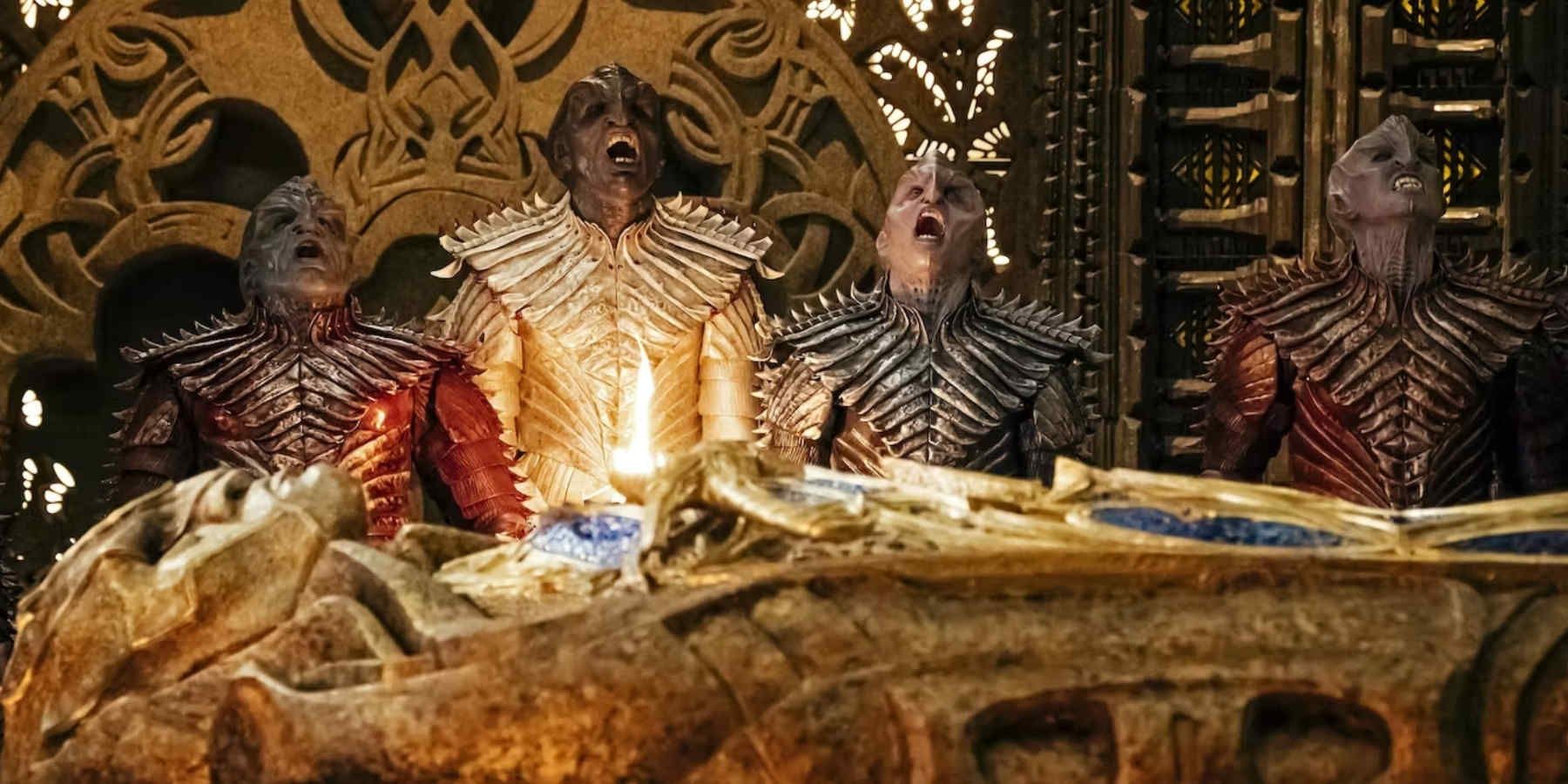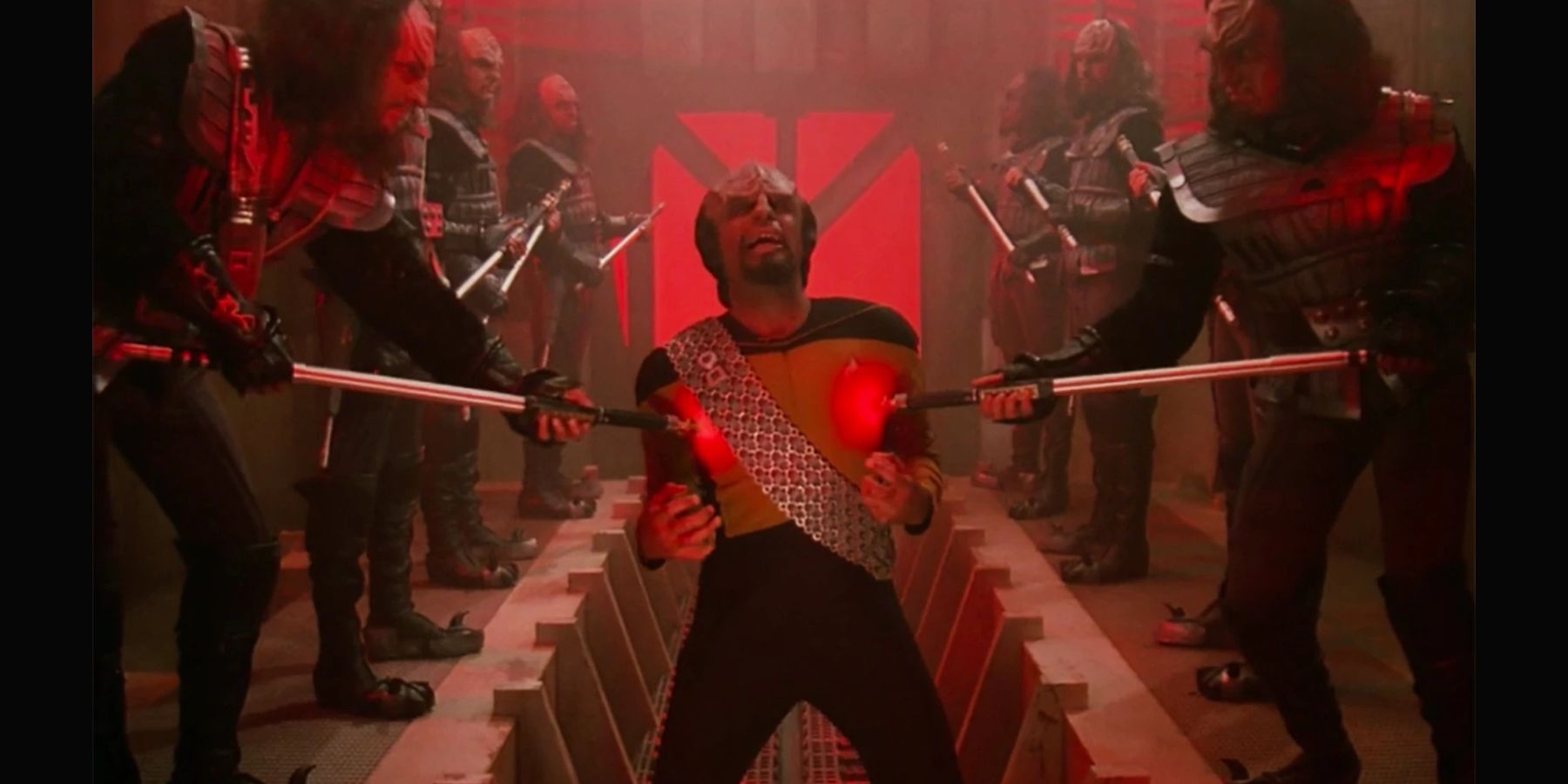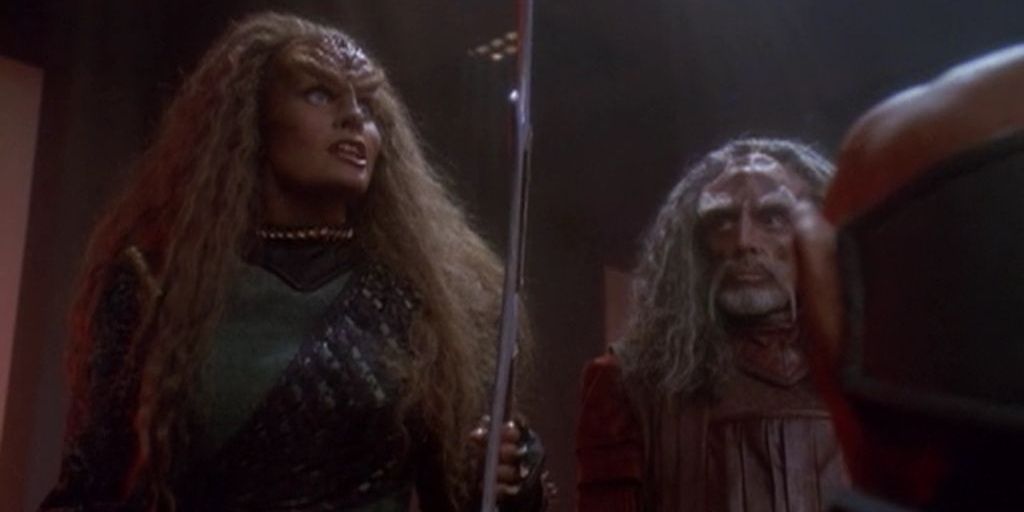Star Trek fans know Klingons for their hedonistic behaviors when it comes to food and fighting, but this race of warrior beings has a surprisingly spiritual side. Worf (Michael Dorn) has often struggled to balance his Klingon identity with his Starfleet ambitions in Star Trek: The Next Generation. Sometimes, this put him in the difficult position of having to prioritize one over the other. Other times, though, circumstances allowed him to be both a Starfleet officer and a Klingon warrior.
Klingon religion turned out to be an intersection at which both sides of his values could co-exist peacefully. Season 1, episode 20, “Heart of Glory,” for example, showed Worf joining other Klingons in observing death rituals such as howling toward the sky. He practiced them with an ally, and later practiced them again with an enemy who fell by his hands. Spirituality clearly holds a high place of importance for many in the Klingon Empire. Following a specific set of rituals while mourning the dead is only the tip of a very organized iceberg.
Sacred Objects
Most Star Trek fans would assume Klingons held the importance of their weapons above all else. It would be a logical conclusion to draw, since they’ve always been notoriously enthusiastic about going into battle. Voyager revealed, however, that there are spiritual objects and texts held with just as much reverence. The Paq’batlh (aka the Book of Honor), the Sacred Scrolls of the Kuvah’magh, and the Eleventh Tome of Klavek are among the most important spiritual texts.
These texts detail wisdom passed on from legendary Klingon warrior Kahless the Unforgettable. The Kuvah’magh is basically the Klingon version of the Emissary, spoken of in prophecy with signs pointing to their possible connection to Starfleet. There are many aspects of Klingon religion that can’t be held in one’s hands. Nay’Poq is a holy month; Boreth is a sacred planet; and the Caves of No’Mat are an important site of pilgrimage. At the same time, any physical object with even a remote connection to Kahless the Unforgettable holds the utmost value for anyone who worships in his name.
A Polytheistic Belief System
In many shows, Star Trek reminds fans that Klingons love the drama of an epic tale. Kahless the Unforgettable earned his name and reputation by defeating the ruthless tyrant Molor. He went on to unite the many great political houses and form the formidable Klingon Empire. Kahless’ leadership ushered in a new era of Klingon spirituality with practices surviving far beyond his eventual passing.
Kortar is the only other name of equal importance, and that’s because it belonged to the very first Klingon ever created. According to Klingon religion, Kortar was given a mate with whom he turned on the very Gods who made him, and was punished as a result. In Deep Space Nine, Worf and Jadzia Dax (Terry Farrell) reference this fated love in their wedding vows in season 6, episode 7, “You are Cordially Invited.” The part about Kortar being banished to forever ferry those who die in dishonor to the lands of Gre’thor isn’t as romantic and, therefore, wasn’t included. Yet, it does touch on the intricate nature of Klingon rituals around death.
Klingon Death Rituals
The Klingon way of life is to run into battle head first and greet death like an old friend. So, it only makes sense that Star Trek spiritual lore around passing in battle – or elsewhere – is just as deep as their love for combat. Klingon religion posits three different options for where the dead might end up after they’re gone.
Those who die without honor travel with Kortar on the Barge of the Dead across the River of Blood to be tortured in perpetuity by the feral creature known as Fek'lhr. Those who die with honor are greeted by Kahless the Unforgettable in Sto-Vo-Kor. As seen in the series premiere of Discovery, Klingons believe their spirit’s arrival is preceeded by a message of the living: “Beware, a Klingon warrior is about to arrive!” It’s communicated in howls, but it gets across just fine.
The most important aspect, though, is that those who pass are remembered by those still living. If they aren’t remembered, then they’re stuck in the Cavern of Despair until those who still live sing their praises once more.
Forms of Worship
When Klingons practice spirituality on the battlefield, they do so using the bat’leth as a form of prayer. Every strike and slash is both a plea to a higher power for strength and an acceptance of death. Outside of combat, though, physical locations or celebratory events bring Klingons in contact with their spirituality.
Discovery wasn't the first Star Trek series to show a Klingon place of worship, but it was a good reminder of how sacred these places are even for a war-oriented race of beings. Many would trek through the unforgiving cold of Boreth to stand at the monastery at which Kahless the Unforgettable promised his return. Another way to honor Kahless the Unforgettable is to attend the Kot’baval Festival to remember his defeat of Molor or take time to self-reflect on the Day of Honor.
The Klingons aren’t as spiritual as the Bajorans. They don't have multiple sites of worship, nor do Star Trek fans ever see them praying to those they consider their Gods the way Bajorans do with the Prophets. In fact, a big part of why it’s so easy to forget that Klingons practice religion is because it’s rarely at the forefront of a specific episode. It usually exists in the background of a series like Voyager, or on the sidelines in a series like The Next Generation. Still, the fact remains that Klingons do practice religion and hold spirituality as close to their hearts as bloodlust.
The Klingons have strong spiritual beliefs that guide them through their lives and provide support when they need it most. Even the proud warriors of Star Trek need something to lean on when things are hard, or to encourage them to reflect on their lives. Klingon religion is a collection of notes reminding them where they came from and to who they owe their freedoms. More importantly, it’s a compass due North when they need to remember where home is, no matter where they are on the battlefield.

